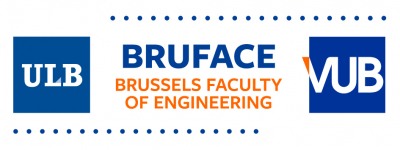Frequently Asked Questions about Bruface Msc degrees
What are the tuition fees for Bruface degrees?
- EEA students: 835 EUR per year
- Non-EEA students: 2782 EUR per year. The fee is calculated as follows: 1102 EUR for main registration + 28 EUR per ECTS. An academic year typically consists of 60 ECTS, hence a total of 2782 EUR.
Do I need to pay an application fee?
Non-EEA students pay an application fee of 90 EUR. EEA-students can apply free of charge. Please note that the application fee cannot be waived and your application will only be read once the fee has been paid.
What are the application deadlines?
- EEA students: 31 July
- Non-EEA students: 31 March
Can I apply for a scholarship?
For non-EEA students, an overview of available scholarship programmes can be consulted here.
What is the difference between a Bruface degree and the other Msc degrees listed?
A Bruface degree is a joint degree between VUB and ULB exclusively. It includes, and only includes, the following programmes: Architectural Engineering, Civil Engineering, Chemical and Materials Engineering, Electrical Engineering and Electromechanical Engineering. Students who wish to apply for this degree, need to go through a pre-admission platform first. The other Msc degrees in Engineering organised at VUB and ULB have their own admission processes, and require different criteria.
In which university will I enroll?
Once your application has been approved, you will receive an electronic letter of acceptance, which you can use to request your visa. The enrolment process can already be completed online, however, we strongly recommend to enroll only once you have received your visa.
If you are an EEA student, your main enrolment will be at ULB. If you are a non-EEA student, your main enrolment will be at VUB. However, the Msc degrees are joint degrees, so you will have lectures, group works, assignments with both VUB and ULB students as a mixed group, and receive access to both facilities and student IDs.
What is the academic calendar like at Bruface?
The year typically starts in mid-September. The year is split in two semesters (September - January and February-July). There is a winter and spring holiday, during the summer holiday students have the opportunity to retake failed exams.
How do examinations work at Bruface?
Exams are organised at the end of the semester, therefore twice a year. Once in January and once in June. Should you have failed an exam, you will have the opportunity to retake the exam in the second exam session in late august/early September. An exam can only be organised during the exam period, which is fixed in the joint calendar. No exceptions apply.
I am already enrolled in the Bruface. Where can I find more information regarding internships?
For students enrolled at VUB, please click here to read more
For students enrolled at ULB, please go to the internship module on Université Virtuelle for more information.
Frequently asked questions about studying in Brussels
How can I prepare my visa application to come to Belgium?
Although procedures may differ from one Belgian diplomatic representation to another, the basic requirements for visa applications for non-EEA are listed here.
There are no formalities before arrival for EEA citizens staying over 90 days, only a passport or a national ID card is required.
What is the cost of living like in Brussels?
The average cost of living amounts around € 1200 per month (depending on the amount of house-rent, food cost, leisure, etc.).
I have a non-EEA student, but have the right to stay in Belgium or the EU, which deadline should I take into account?
Students who have a non-EEA nationality but have the legal right to reside in Belgium or a country within the EEA zone, can apply until 1 September. It's important that you have at least 12 months of legal rights to reside in Belgium, if not, your application can be rejected.
How can I prepare my stay in Belgium?
While you are waiting for the outcome of your application, you may contact the Belgian consulate or embassy nearest to your place of residence in order to learn about the process and the other documents required.
Here you can find a more detailed overview of matters to take into account.
What to bring to Belgium before arriving?
When preparing for a short or a long term stay at the Vrije Universiteit Brussel, and in order to allow for a smooth adjustment in Brussels, many items are to be considered and/or brought along. Here you can find an overview of those items.
Can I work as a student in Belgium?
If you are enrolled as a fulltime student, you can work a student job as a subordinate activity. More information about how much you are allowed to work and how to find a student job, can be found here
How does the credit system work in Belgium?
Each programme contains 60 ECTS in the first Msc year. A programme consists of 120 ECTS in total. 1 ECTS equals approximately 25 to 30 hours of work (including lectures, self-study, assignments...)
